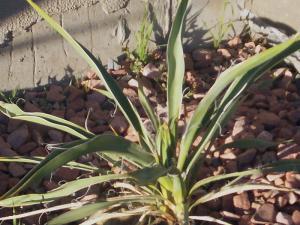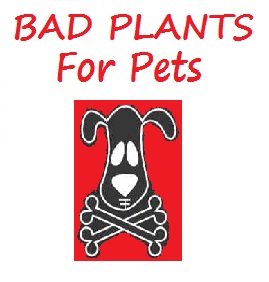Yucca

There is limited toxicological data available for yucca. A 12-week study in rats concluded that yucca was nontoxic. The plant does contain saponins, although they are not thought to be absorbed from the gastrointestinal tract, thereby reducing the dangers of systemic haemolytic activity1. This does not mean that pets cannot be affected, only that the overall lethality of the plant is on the low side for all species. The plant should at the very least be considered mildly toxic to pets as it does contain saponins; natural chemicals produced by the plant to protect it from insects, microbes and fungi. The level of toxin, however, is relatively low and the consequences for a pet that ingests the plant are typically limited to gastrointestinal upset. Further decreasing the likelihood of a potentially life threatening intoxication as a result of ingesting Sansevieria trifasciata is the fact that the saponins give the plant a very bitter taste, making it relatively non palatable. Thus it is wholly unlikely that a pet would or could tolerate eating a massive enough amount of the plant to suffer a life threatening toxicosis.
Reference:
Bingham R et al. Yucca plant saponin in the management of arthritis . J Appl Nutr 1975; 27: 45-51.
Avoid further ingestion of the plant and consult a veterinarian. Treatment is going to be largely symptomatic and supportive. If the ingestion was recent remove any existing plant matter from the mouth and if vomiting does not occur it may be induced by giving a teaspoon or less (size dependent) of 3% hydrogen peroxide orally. The pet will more than likely start vomiting on their own without the help, as their body tries to expel this non digestible material. Ensure the pet gets plenty of fluids to avoid possible dehydration caused by diarrhea. To alleviate the gastrointestinal upset and diarrhea Kapectolin may be given at a dose rate of 1 to 2 ml/kg four times a day. Kapectolin provides a coating action that protects the stomach lining. Sucralfate may also be used as for gastrointestinal irritation as it reacts with the acids in the stomach to form a paste-like material capable of acting as a barrier between the stomach and its contents. Sucralfate is typically given to dogs weighing more the 60lbs: 1g every 6 to 8 hours; for dogs under 60 lbs: 0.5g every 6 to 8 hours; Cats: 0.25g every 8 to 12 hours to reduce irritation of the stomach and intestines. The prognosis is good and pets are expected to make a full recovery in 1 to 2 days.




